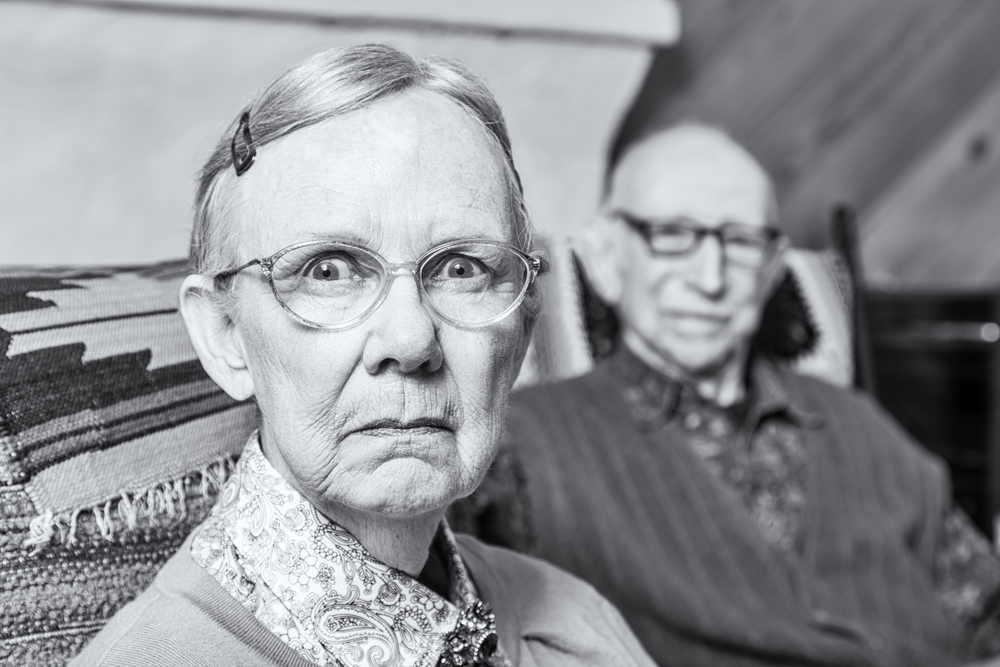
According to the latest findings, adult children are cutting ties with their elderly parents. Even television shows have depicted this phenomenon: on the murder mystery show Endeavor, the daughter of detective Thursday is barely speaking to her father. Relatives of all types and varieties- cousins, aunts, uncles, nephews, nieces, grandparents- are giving the cold shoulder to one another to a greater degree than ever before. What is causing all this cutting of familial ties?
One of the “usual suspects” is the greater political polarization of recent vintage. Democrats and Republicans are at each other’s throats. The same for liberal progressives and conservative libertarians. Throw Oath Keepers, Proud Boys, Antifa, and Black Lives Matter into the mix, and the result is divisive pandemonium.
The English are still hotly debating Brexit, and all the world over people are disagreeing with each other about COVID- vaccinations, masking, and all the rest.
There is no reason why all this should not impact relatives as well as the general public. So part of the explanation is the present general political malaise. It used to be that people could disagree with each other and still remain friends, good friends. Nowadays, all too often, this is a relic of the past.
Then there is the issue of mental illness, perhaps evidenced most powerfully by rising suicide rates. Lock people up, even in their own homes; do not allow kids to go to school for months and even years on end; something has got to burst, and one of the products of this phenomenon is undoubtedly psychological debilitation. Isolation and “social distancing” over the long haul cannot be expected to have good results for mental health. This, in turn, may lead many people into truculence, lessened ability to see the other side; road rage, here we come. All of this flows into family and friendship breakups. “Bump my shoulder, will you? Here’s a punch in the mouth for the likes of you,” is all too often the reaction, whereas in times past there would have been mutual apologies. The “argument” more likely would have been “It’s my fault, sorry.” “No, I apologize, it’s my fault.” Students whining about professors using “offensive” micro-aggressive language plays into this phenomenon as well.
Sometimes, if you really want to get to the cause of social phenomena, asking qui bono cuts to the kernel of the matter. So, who benefits from the breaking of family ties?
There are three main institutions that vie for the “hearts and minds” of the populace. They are the family, religious institutions, and the government. Given the weakening of the former, do churches and synagogues benefit in any way? It is difficult to see how this would be the case. For one thing, these organizations have as their goal the strengthening of the family, not its dissolution. For another attendance has been falling, not rising, which does not at all support this contention. There have been religious leaders thrown in jail for rejecting requirements to disband services, or limited to holding them electronically.
What about government? Its power has increased, dramatically, during COVID; that is a no-brainer. Perhaps the strongest indictment against the state in this regard took place in the USSR, when children were rewarded for tattling on their parents. The U.S. too, weakens family ties. Before the advent of Social Security, and the burgeoning of the welfare program in 1965 under LBJ’s “Great Society,” adult children felt more responsible for elderly parents than they do today. This cannot fully account for severed family ties in the modern era since these programs are of long duration. But they undoubtedly weakened such connections, and in that state these other considerations could play a more powerful role.
Walter E. Block is Harold E. Wirth Eminent Scholar Endowed Chair and Professor of Economics at Loyola University New Orleans and is co-author of An Austro-Libertarian Critique of Public Choice (with Thomas DiLorenzo).

READER COMMENTS
Matthias
Feb 12 2022 at 7:26am
There are plenty of institutions beyond the three you mention that vie for people’s hearts and minds.
Monte
Feb 12 2022 at 11:48am
IMO, it’s an agglomeration of PC, CRT, wokeism, etc., all bound up rather nicely in this definition Cultural Marxism (if you can choke down all the conspiracy theory, conservative dog-whistle blather to the contrary). But if you want an explanation beyond the corporeal, a reading of Ephesians 6:12 may be in order.
Thomas Strenge
Feb 13 2022 at 6:30pm
Don’t forget social media. It has never been easier to surround oneself with information sources that agree with one’s particular world view and shut out discordant voices. We live in the age of confirmation bias.
Phil H
Feb 17 2022 at 8:28am
“It used to be that people could disagree with each other and still remain friends, good friends.”
No, there were never any good old days. They used to pass laws because they couldn’t bear to share space with people who *looked* different. You don’t seriously imagine they accepted people who thought different, do you?
In the past, the poor were kept in their place, and the rich didn’t ever have to meet them. That’s how disagreement was “tolerated”.
Comments are closed.